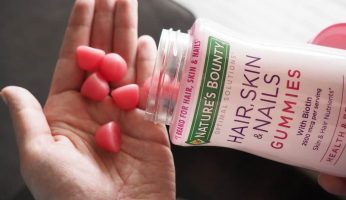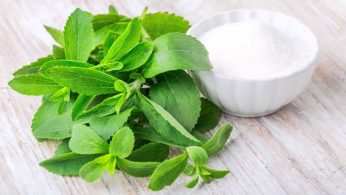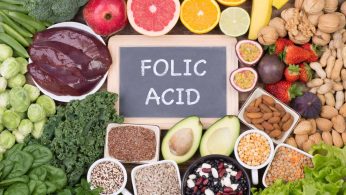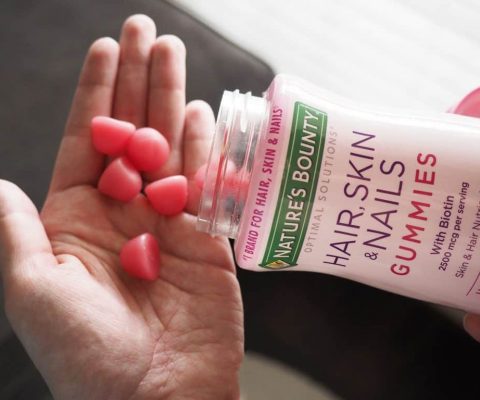Hyaluronic Acid vs. Collagen — the Best in Beauty and Anti-Aging
Disclosure: We use affiliate links and may receive a small commission on purchases.
 Hyaluronic Acid vs. Collagen — the Best in Beauty and Anti-Aging
thefitbay.com
Hyaluronic Acid vs. Collagen — the Best in Beauty and Anti-Aging
thefitbay.com
When considering the hyaluronic acid vs. collagen debate, it’s important to remember that both are vital for the proper function of the body and that they have different functions. Hyaluronic acid is produced by the body, whereas collagen is derived from the foods we eat, but both have amazing benefits.
Join us as we explore both in detail, leaving you with a clearer picture of which of these two you should pick, if not both. This will also aid you in making an informed decision on the best hyaluronic acid supplement.
What is Hyaluronic Acid?
Although this might sound like something you once used in a science lesson, hyaluronic acid — HA — is one of the most popular supplements in the world of anti-aging. HA is actually a gel-like substance that’s naturally present in the body and is responsible for keeping skin plump and hydrated (1). As HA is also required in the healing of wounds and the repair of tissues in the body, you must replace that which is lost by everyday life. (2)
From harsh weather to free radicals in the air, there are many causes of losing up to one-third of the HA found in our bodies daily, so it’s important to replace these to keep the skin and joints in tip-top condition.

Hyaluronic Acid Forms / Types
Make sure you choose the best hyaluronic acid to suit your needs from these different forms:
- Topical creams, lotions and ointments.
- Tablet HA
Topical Hyaluronic Acid
When applying HA as a topical formula, you should follow a good skin-cleansing routine then apply a thin layer — usually, just a few drops of serum on damp skin for best results. This is key as the damp skin allows the HA to be absorbed into the skin faster, and then you can lock it in with a good moisturizer to keep the benefits working throughout the day.
Tablet/Pill Hyaluronic Acid
Taking HA orally as a health and beauty supplement is believed to help with osteoarthritis, insomnia and fibromyalgia. This is as well as hydrating the skin and reducing the rough feel and lines, especially as you get older.
In one study, the use of oral HA supplements reduced the appearance of wrinkles on the face in 12 weeks compared to those who didn’t take HA. (3)
Recap
Using HA in your skincare routine can significantly improve the condition of your skin. It can improve skin hydration, reduce fine lines and wrinkles, keeping it soft and supple. Hyaluronic acid is one of the most hydrating substances, so it’s only right it should be used for skin care in the beauty industry for plumpness and wrinkle-reduction.
What is Collagen?
Collagen is a form of protein naturally found in the human body and is the primary structural component of skin and other tissues. Collagen comes from the breaking down of protein we eat into amino acids.
What Is Collagen Made Of?
It’s a hard, fibrous protein that’s usually tightly packed to form fibrils — it’s these fibrils that give skin its strength and elasticity. (4)

Types of Collagen
There are at least 16 different types of collagen in the body; however, 80–90 percent of the collagen is type one, two and three. (5) These three types play a key role in strengthening skin, providing elasticity and moisture to the skin. As we age, natural collagen production reduces, leaving the skin dry and less plump.
Collagen Supplements, Creams or Filler
Collagen can be replaced and replenished through supplements or topical face creams. Face creams with collagen as a key ingredient are used to reduce the appearance of fine lines and wrinkles.
Collagen, however, is a very tough protein, and its ability to soak into the skin is very limited. Supplements are known to reduce the effects of aging in as little as 12 weeks when taken daily. (6)
Fillers are a temporary solution that are applied directly into the skin to have an immediate impact in a specific area. From here, the body can also use it to assist in other areas.
Recap
Collagen is a protein that’s naturally present in the body, but increasing its level can improve the appearance of fine lines and wrinkles. Collagen is a very hard substance, so it can’t be absorbed very well through a topical cream. This means your best chances of increasing its levels in the body are through supplements.
Difference Between Collagen and Hyaluronic Acid
Hyaluronic Acid Pros
As HA promotes moisture and lubrication, its effects are often seen as better than collagen. This is since a key problem when looking at aging skin is the lack of plumpness and rough feeling, which increasing HA can improve.
What Is Hyaluronic Acid Good For?
Hyaluronic acid is well-known for reducing fine lines and wrinkles, with visible results from as little as eight weeks. That isn’t to ignore that it’s exceptional for relieving joint pain, too, producing a double-whammy for our bodies.
Taking HA supplements is still considered the better way of increasing HA levels, in comparison to using a serum straight onto the face and neck.
Hyaluronic Acid Cons
Hyaluronic acid is better for reducing joint pain by lubricating joints. The anti-aging improvement around the eyes, face and neck is more of a side effect of this process.
Currently, HA isn’t safe to use by pregnant women since not enough studies have been done to rule out birth defects, complications and miscarriages. Nor is it advisable for those with a history of cancer, as although not completely proven, there have been links made between HA and the increased growth of certain cells. (7)
Collagen Pros
Collagen is proven to reduce wrinkles in just 12 weeks. However, it can also be injected into the skin as a filler as it’s resorbable, meaning it can be broken down, then absorbed back into the body after being put back in.
What Is Collagen Good For?
Taken as a supplement, it can increase its presence in the body, which can rebuild our tissues and make wrinkles appear less visible.
Collagen Cons
Some studies have shown a reduced success rate for improving skin suppleness when using a collagen cream or gel. This is because collagen is a tough protein, which is harder for the skin to absorb.
Collagen reduction is more significant during and after the menopause, so younger women may not see benefits as much as older women.
Although collagen fillers have an immediate impact, these are a temporary solution, and some find them to become an expensive treatment when taking regularly. Also, some fillers are made from cow skin, so there are some clear moral concerns over their use.
Taking Hyaluronic Acid Supplements
If you’re looking for a product to improve overall skin appearance and suppleness, hyaluronic acid tablets can aid in the body’s natural production of this moisturizing substance.
Your skin and joints may feel much smoother and more supple as a result of its regular use. Some suggest taking HA as well as collagen can improve the appearance of wrinkles as they combat different aging problems.
You can take HA supplement at any time of the day, but follow the instructions on the packaging — this is usually just one capsule per day. There’s currently no specific dosage or limit on HA in supplements, but some studies have used up to 200 mg per day with no negative effects recorded. (8)
Ensuring you drink enough water, taking an HA supplement can also improve arthritic pain, dry itchy eyes and some fibromyalgia symptoms. (9,10) This is often because the supplements usually contain other ingredients such as glucosamine and vitamins. The best results from these studies have been when a mixture of HA and vitamin C have been administered since vitamin C is a natural antioxidant. (11)
Taking Collagen Supplements
Collagen supplements are proven to improve the appearance of wrinkles similar to HA, but only as an oral supplement, not a topical cream or gel. (12)
Collagen isn’t only great for anti-aging, but it also has links to improving hair and nail growth and quality. Unlike when collagen is injected, taking this orally makes it harder to absorb straight into the affected wrinkled areas on the face.
When taking supplements, it’s key to try and reduce the collagen loss in the first place, and this can improve your results from taking the supplement. Collagen loss can be attributed to UV exposure, high sugar consumption and smoking, so be conscious of these if you’re considering supplementation. (13)
Collagen supplements can be taken at any time of the day, preferably with food, and the average pill includes around 1,000 mg of marine collagen. Some suppliers suggest taking one to two capsules per day but advise not to exceed this dosage.
Summary
Debating on collagen vs. hyaluronic acid is a very hot topic, but both have similar results. Hyaluronic acid has more evidence and support from the health and beauty community, making it a more-trusted option when looking to improve skin tone, complexion and provide anti-aging qualities.
Collagen has been proven to reduce fine lines and wrinkles, and this could be even more effective for post-menopausal women due to the significant reduction in natural collagen production.
As hyaluronic acid and collagen target slightly different areas of anti-aging, a healthy mix of both would give you the best results overall. To truly achieve the best result, use a combined regimen that includes HA supplements as well as a vitamin C supplement.










